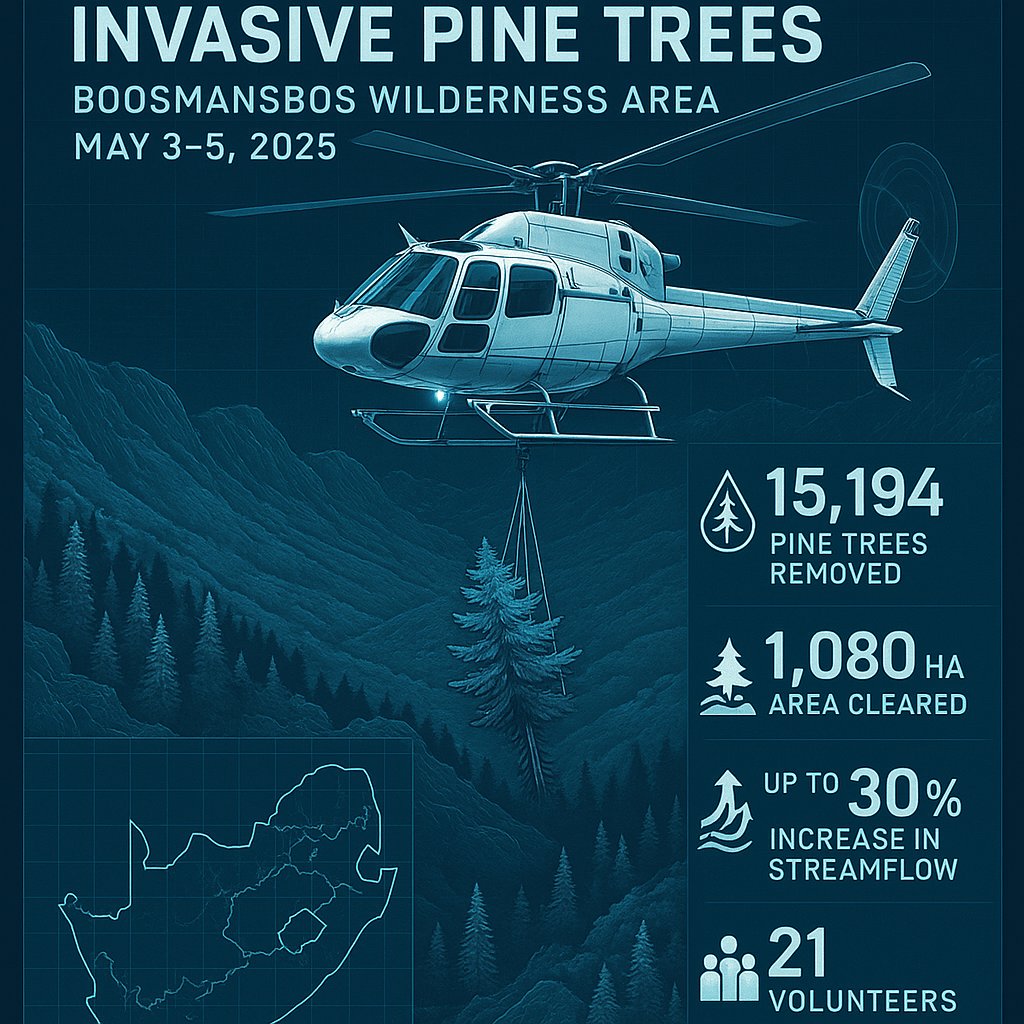Image created by AI
Record-breaking Pine Clearing Enhances Water Security in Boosmansbos Wilderness
In an unprecedented environmental conservation effort, Boosmansbos Wilderness Area has witnessed its most successful pine clearing operation to date. From 3–5 May 2025, the HeliHack initiative successfully removed 15,194 invasive pine trees, greatly enhancing regional water security and protecting biodiversity.
Boosmansbos, managed by CapeNature, is part of the Langeberg Strategic Water Source Area within the Grootvadersbosch complex. This area plays a critical role in supplying water to approximately 15,000 residents of Heidelberg, Slangrivier, Witsand, and surrounding agricultural lands.
The invasive pines pose a significant threat by consuming vital water resources—over 7% of South Africa's water supply—and increasing wildfire risks due to their dense growth and high resin content. Removing these trees can boost water streamflow by up to 30%, a vital step given the challenges posed by climate change and the increasing water demand.
The HeliHack technique, using helicopters to access and remove trees from steep, rugged terrains, proved essential in tackling the difficult terrain of Boosmansbos. The operation spanned over 1,080 hectares, with 21 volunteers and helicopter crews working tirelessly over three days. The immense effort not only surpassed previous records but also marked a significant advancement in invasive species management, with approximately 27% of the wilderness area now cleared of invasive pines.
This operation is part of a broader commitment by CapeNature to bolster conservation efforts through innovative strategies. The success of these initiatives relies heavily on collaboration with local communities, volunteers, and various stakeholders, emphasizing the importance of joint efforts in environmental conservation.
In addition to water resource management, the HeliHack operation has a profound impact on local biodiversity. The removal of invasive species restores native ecosystems, which are crucial for the survival of endemic species. Remarkably, this initiative also facilitated the rediscovery of the elusive Boosmansbos long-tailed forest shrew, a critically endangered species not seen in the area for over four decades.
Looking ahead, CapeNature has pledged to expand the HeliHack project within Boosmansbos and extend it to other Provincial Nature Reserves. This expansion underlines a growing recognition of the need for innovative approaches to conservation that can sustain the ecological and water security of the region.
The HeliHack project at Boosmansbos is more than just an environmental conservation effort; it's a lifeline to the communities depending on these natural resources. It's a testament to the power of innovative conservation methods and the enduring impact of collaborative environmental stewardship.










